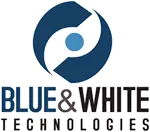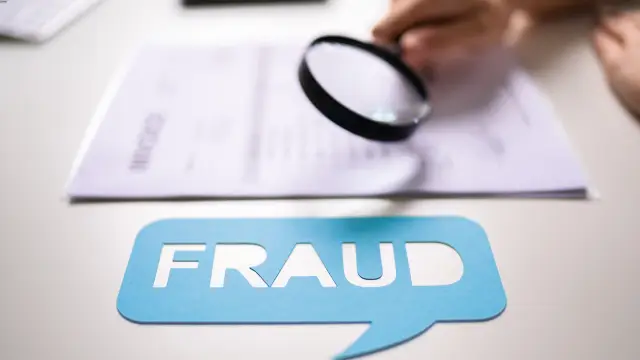How Small Restaurants can Stop Hackers and Payment Fraud
Small restaurants are prime targets for cyberattacks and applying the right cybersecurity measures can protect customer data, prevent fraud, and ensure compliance with payment security standards.
Bad actors constantly seek weak cybersecurity in small restaurants to prepare for and perpetrate their attacks. Detecting fraud requires regular audits, surveillance cameras, permanent IT systems monitoring and employee training.
Some of the most common fraud attacks in the restaurant industry are:
Credit Card Skimming and Cloning
A small device called skimmer is attached to the POS system or card reader, stealing card information when customers swipe. Criminals use stolen data to create cloned cards for fraudulent purchases.=
Chargeback Fraud
The also called friendly fraud happens when a customer disputes a legitimate charge, claiming they never made the purchase, received the order, or that their card was used fraudulently. The restaurant loses the sale, pays chargeback fees, and risks account suspension from payment processors.
Online Ordering and Delivery Scams
Fraudsters use stolen credit card information to place large online orders, claim they never received them, and demand refunds. Restaurants lose food and money, plus chargeback fees.
Employee Theft and Internal Fraud
It happens when the restaurant staff pockets cash payments without recording the sale, employees void or refund transactions to take the money or fake gift card fraud, loading funds onto cards without payment. Restaurants lose revenue and face potential legal consequences.
Fishing and POS System Hacking
Hackers send fake emails pretending to be from POS providers or banks, tricking employees into revealing login credentials, malware is installed on the POS system, allowing criminals to steal card data.
Security measures for prevention
For restaurants, it is important to stay compliant with the industry regulations, specially PCI-DSS, and follow data protection laws like CCPA and GDPR. Secure customer data storage and limit unnecessary data collection.
Here is a list of the most important measures to take:
-
Use EMV chip readers, which are harder to clone
-
Regularly inspect card readers for tampering
-
Always require signature or PIN verification, especially for large orders
-
Use CVV verification and address matching for online payments
-
Train staff to spot suspicious devices on payment terminals
-
Use order tracking with delivery confirmation photos and receipts, especially on online orders
-
Clearly display refund and chargeback policies
-
Use POS role-based access to limit who can issue refunds and voids
-
Regularly audit sales reports and cash drawer logs
-
Implement cameras near registers for monitoring
-
Train staff on fraud awareness and detection
-
Enable real-time transaction monitoring and fraud alerts
-
Work with PCI-compliant payment processors
-
Never click on suspicious links in your incoming emails
-
Regularly update POS software, firewalls and other cybersecurity elements in your network to prevent hacking and fraud
Train employees on Cybersecurity Best Practices
Teach your staff to recognize phishing and scams. Hackers use emails or phone calls pretending to be POS, banks, or suppliers. Employees should never click on unknown links or share login details over the phone or email. Require strong, unique passwords and multi-factor authentication (MFA) for access to your systems, especially those that are considered critical.
Implement Strong Network & Wi-Fi Security
Setup separate Wi-Fi for guests and employees to prevent hacks. Disable public access to the POS system network. Never store customer credit card details unless required by a secure, PCI-compliance system. Use a firewall and network security monitoring.
Implement Data Backup & Recovery Plans
Automate daily backups of POS, customer data and other critical business data. Use secure backup services.
Conclusion
Invest in proactive cybersecurity solutions. A managed IT service provider (MSP) can handle cybersecurity, compliance, and IT support, allowing restaurant owners to focus in their business. Investing in cybersecurity and adequate IT resources management help protect and grow your revenue, and avoid reputational damage. Educating your staff is just as important as having efficient security tools. Protect your restaurant from unwanted fraud events and keep your business secure and operational.
Follow us on social media and stay connected, subscribe to our YouTube channel.
If you need assistance with these topics, contact us, we’ll be happy to help.
#RestaurantFraud #SmallBizSecurity #PaymentFraud #ChargebackScam #POSFraud #CreditCardScams #RestaurantCybersecurity #OrangeCounty #LACounty #UtahBusiness #UtahEntrepreneurs #UtahTech #UtahIT #DigitalTransformationUtah #UtahBusinessOwners #SaltLakeCity #ParkCity #Provo #Highland #Ogden #Lehi #Draper #Orem #Lindon #Vineyard #SaratogaSprings #AmericanFork #PleasantGrove #SaltLakeCity #StGeorge #Provo #ParkCity

